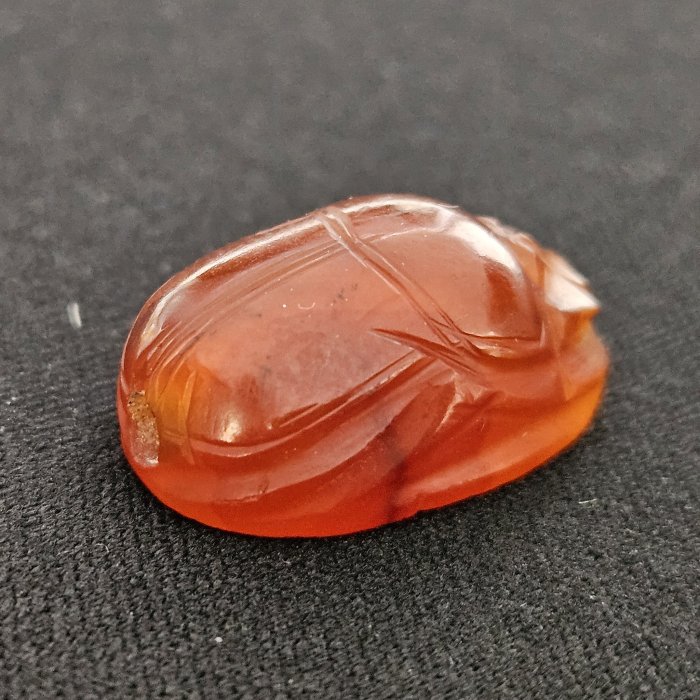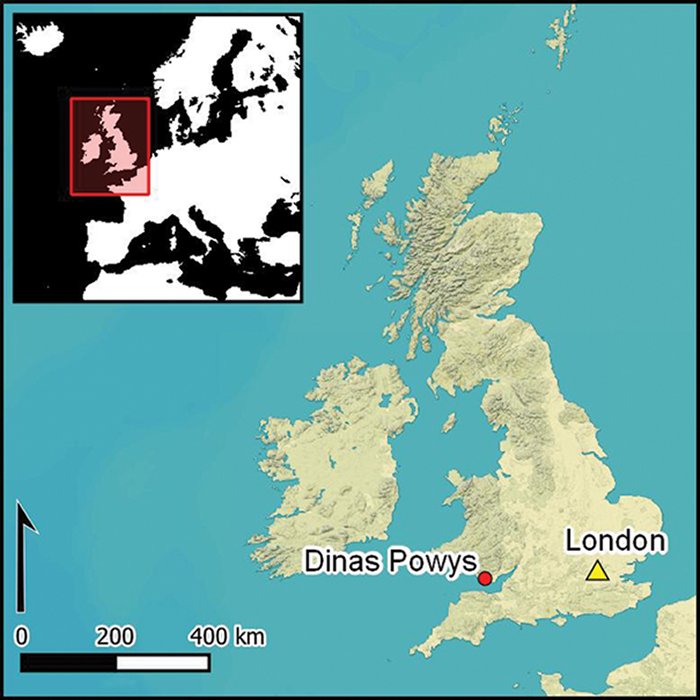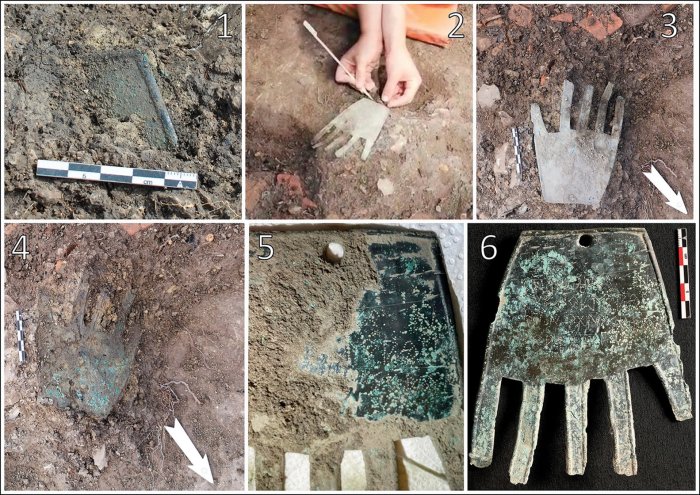A. Sutherland – AncientPages.com – Cretan legends say that Daedalus led the construction of the famous Labyrinth for the Minotaur on the island of Crete.
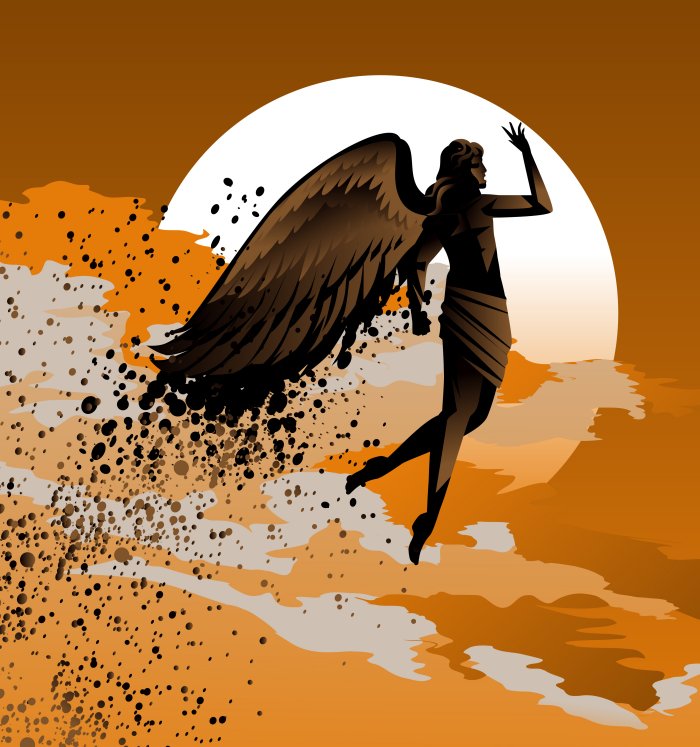
Icarus. Credit: Adobe Stock – matiasdelcarmine
He was a master in various arts. Various cities ordered statues of Gods and heroes from him, and people came to admire his work.
A beautiful legend is devoted to Daedalus, the Athenian sculptor, architect, painter, inventor, and his son Icarus, who forever remained an example for many dreamers.
It was said about Daedalus that his works of art were as if they were alive, giving the impression that they were moving, walking, and looking. It often happened that priests in temples tied his statues with chains so they would not escape the temple. It was said that one day, Heracles, walking at night, saw one of Daedalus’ monuments, thought it was some dangerous enemy, and started attacking him with stones.
Later, the Greeks did not find the artist’s works so impressive and beautiful. However, no one laughed at Daedalus or his creations in the days of King Minos. He was worthy of fame and respect. The artist and inventor made impressive and valuable inventions.
In Pliny’s Natural History, he is credited with inventing carpentry, including tools like the axe, saw, glue, drill, and more, which have served humanity until this day.
It is also believed he first invented masts and sails for ships for the navy of King Minos.
He also gave Ariadne, a Cretan princess and the daughter of King Minos of Crete (in Greek mythology), a ball of thread, with which the hero Theseus got out of the Maze after killing the Minotaur. The master Daedalus was loved and respected by Minos, and the king refused to let him leave Crete.
He was right; the master was always with the king and knew many secrets of the state.
Then, Daedalus invented a new way to escape from Crete.
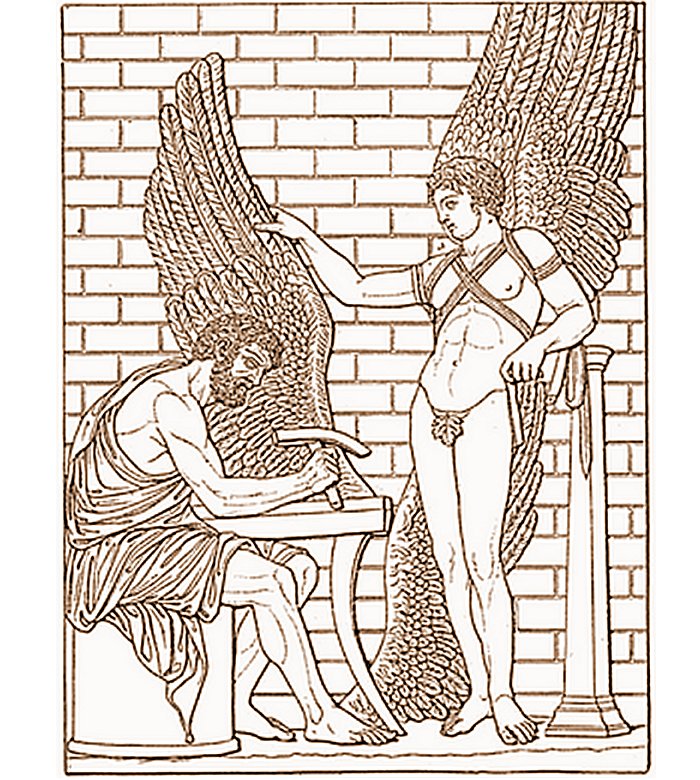
Daedalus constructs wings for his son, Icarus, after a Roman relief in the Villa Albani, Rome (Meyers Konversationslexikon, 1888). Image upploader: Zinnmann – Public Domain
From the feathers of birds glued together with wax, he made enormous wings for himself and his son, Icarus. They both fastened them to their arms, and before trying to escape the island, he warned his son not to fly too close to the sun nor too close to the sea but to follow the father’s flight path.
He said:
“Icarus, my son, I charge you to keep at a moderate height, for if you fly too low, the damp will clog your wings, and if too high, the heat will melt them.
Keep near me, and you will be safe.”
While he gave him these instructions and fitted the wings to his shoulders, the face of the father was wet with tears, and his hands trembled. He kissed the boy, not knowing it was for the last time…”
Overcome by giddiness while flying, Icarus disobeyed his father and soared into the sky. He was impressed and happy to fly.
When they flew over the sea, Icarus, contrary to his father’s strict prohibition, rose too close to the sun.
The sun’s rays melted the beeswax holding Icarus’ feathers together, and the wings disintegrated. Icarus was still flapping his “wings,” but he realized he had no feathers left and was flapping his bare arms.
Then, he fell into the sea and drowned. In one version, the boy’s body washed ashore by the waves was buried by Hercules on a small island named after him, Icaria.
The sea was later named the Icarian Sea.
In another version, Daedalus buried his son and then left for Sicily.
However, the most outstanding achievement of the legendary master Daedalus was not his unique statues of Greek divinities or splendid buildings but the skillful wings that elevated him to the sky.
He attempted to fly; he felt special and had a feeling he
became like the gods, and so he offended them.
Laocoon was a Trojan priest, who also offended the gods. As punishment, Laocoon and his two sons were strangled by sea serpents. Another Greek mythological personality represents Bellerophon, a great hero, who was punished by the gods for his pride and arrogance.
The myth wants to show us a person’s desire to achieve something special and to rise above the ordinary. In those ancient times, it was wrong, and no doubt, the myth was a warning for people intoxicated with success, underestimating the reality.
But we have to admit that the Athenian master Daedalus was a man boldly going to succeed.
Written by – A. Sutherland – AncientPages.com Senior Staff Writer
Copyright © AncientPages.com All rights reserved. This material may not be published, broadcast, rewritten or redistributed in whole or part without the written permission of AncientPages.com



